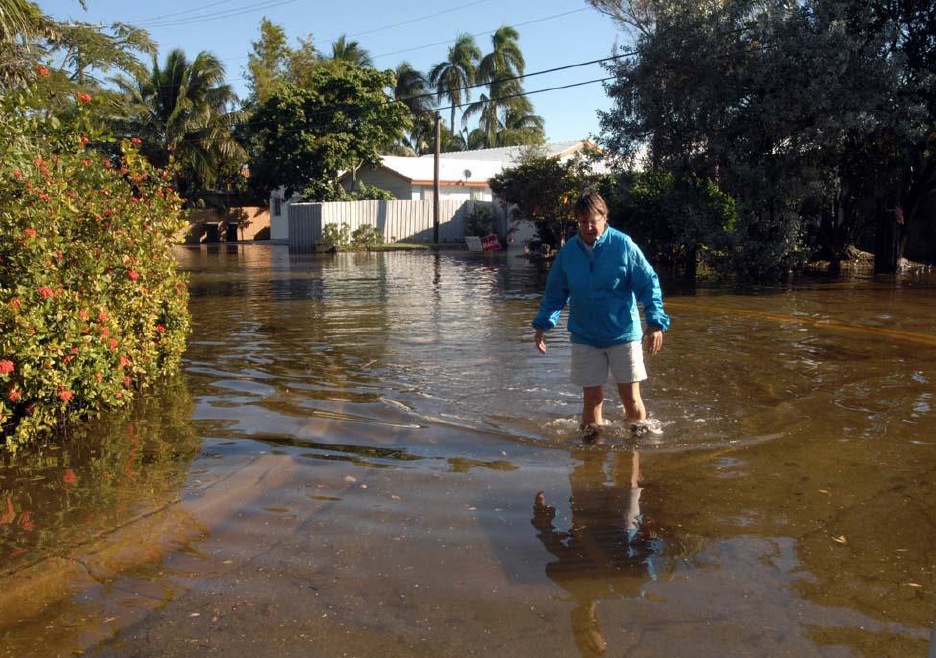PRESIDENT’S STATE, LOCAL, AND TRIBAL LEADERS TASK FORCE ON CLIMATE PREPAREDNESS AND RESILIENCE
As the Third National Climate Assessment makes clear, climate change is already affecting communities in every region of the country as well as key sectors of the economy. Recent events like Hurricane Sandy in the Northeast, flooding throughout the Midwest, and severe drought in the West have highlighted the vulnerability of many communities to the impacts of climate change. In 2012 alone, the cost of weather disasters exceeded $110 billion in the United States, and climate change will only increase the frequency and intensity of these events. That is why, even as efforts to reduce greenhouse gas emissions continue, communities must prepare for the impacts of climate change that can no longer be avoided.
 At state, local, tribal, and territorial levels, leaders are making bold decisions on ways to invest in more resilient infrastructure, revise land use, update building codes, and adjust natural resource management and other practices to improve the resilience of their communities to climate impacts. The Federal Government has a critical role to play in supporting these efforts by ensuring that Federal policies and programs incorporate climate change, incentivize and remove barriers to community resilience, and provide the information and assistance communities need to understand and prepare for climate risks. The Federal Government also has a responsibility to protect its own investments, such as military installations and space launch facilities, and ensure that the lands and resources it holds in the public trust are managed for a changing climate.
At state, local, tribal, and territorial levels, leaders are making bold decisions on ways to invest in more resilient infrastructure, revise land use, update building codes, and adjust natural resource management and other practices to improve the resilience of their communities to climate impacts. The Federal Government has a critical role to play in supporting these efforts by ensuring that Federal policies and programs incorporate climate change, incentivize and remove barriers to community resilience, and provide the information and assistance communities need to understand and prepare for climate risks. The Federal Government also has a responsibility to protect its own investments, such as military installations and space launch facilities, and ensure that the lands and resources it holds in the public trust are managed for a changing climate.
In order to better support communities across the country as they prepare for the impacts of climate change, the Task Force proposes that the Administration advance actions across the Federal Government that align with the following overarching principles:
- Require consideration of climate-related risks and vulnerabilities in the design, revision, and implementation of all Federal policies, practices, investments, regulations, and other programs.
- Maximize opportunities to take actions that have dual-benefits of increasing community resilience and reducing greenhouse gas emissions.
- Strengthen coordination and partnerships among Federal agencies, and across Federal, state, local, tribal, and territorial jurisdictions as well as economic sectors.
- Provide actionable data and information on climate change impacts and related tools and assistance to support decision-making at all levels.
- Consult and cooperate with Tribes and indigenous communities on all aspects of Federal climate preparedness and resilience efforts, and encourage states and local communities to do the same.
The diverse challenges posed by climate change will require a wide range of actions to ensure that communities across the country, large and small, are prepared. With coordination, thoughtful planning, and decisive action, Federal, State, and local governments, Tribes, and territories can ensure a safe and prosperous future.
Summary of Recommendations
1. Building Resilient Communities: Climate change will impact communities for years to come, and long-term efforts to build resilience will help communities thrive in the 21st century and beyond. By incorporating climate change considerations into its programs, the Federal Government can support communities as they rethink traditional approaches to land use and land management, building and infrastructure siting and design, and community planning.
2. Improving Resilience in the Nation’s Infrastructure: Climate change poses a significant threat to the safety and reliability of critical infrastructure systems. Whether related to energy, transportation, freshwater management, coastal protection, or ecosystems, Federal action can improve the way climate impacts and greenhouse gas emissions are incorporated into public and private infrastructure investments, policies, and practices.
3. Ensuring Resilience of Natural Resources: Climate change puts America’s vital natural resources and ecosystems at risk. By helping communities better protect and conserve the Nation’s natural resources, the Federal Government can improve human and community resilience in cost-effective ways.
 4. Preserving Human Health & Supporting Resilient Populations: Climate change presents a significant public health threat to individuals and communities, exacerbating illness and increasing the frequency and severity of dangerous extreme weather events. The Federal Government can support State, local, tribal, and territorial efforts to address the needs of populations most vulnerable to climate impacts, protect public health, and improve disaster preparedness.
4. Preserving Human Health & Supporting Resilient Populations: Climate change presents a significant public health threat to individuals and communities, exacerbating illness and increasing the frequency and severity of dangerous extreme weather events. The Federal Government can support State, local, tribal, and territorial efforts to address the needs of populations most vulnerable to climate impacts, protect public health, and improve disaster preparedness.
5. Supporting Climate-Smart Hazard Mitigation and Disaster Preparedness and Recovery: Climate change will increase the frequency and severity of extreme weather events, which are often devastating to communities. Through more holistic hazard mitigation planning, improved data collection and mapping, partnership development, and program modernization, the Federal Government can improve efforts to prevent and mitigate the effects of extreme weather and other climate-related hazards.
6. Understanding and Acting on the Economics of Resilience: Climate change poses significant economic risk to all sectors and communities. Advancing measures to encourage more prudent investments in long-term resilience can better ensure a vibrant economic future as the climate continues to change.
7. Building Capacity for Resilience: To successfully prepare for climate change, communities must have the capacity to recognize, understand, and assess relevant climate-related hazards, risks, and impacts. The Federal Government can help communities build this capacity by continuing to shape or reshape programs, policies, information sources, and other forms of assistance that enable state, local, tribal, and territorial jurisdictions to prepare for climate change.
Additionally, the Federal Government should establish a process for tracking and reporting on progress made in the implementation of the recommendations, as well as specific benchmarks.
Download full version (PDF): Recommendations to the President
About the President’s State, Local, and Tribal Leaders Task Force on Climate Preparedness and Resilience
www.whitehouse.gov/administration/eop/ceq/initiatives/resilience/taskforce
The State, Local, and Tribal Leaders Task Force on Climate Preparedness and Resilience (Task Force) was established by Executive Order 136531, Preparing the United States for the Impacts of Climate Change, on November 1, 2013. The President charged the Task Force with providing recommendations on how the Federal Government can respond to the needs of communities nationwide that are dealing with the impacts of climate change by removing barriers to resilient investments, modernizing Federal grant and loan programs to better support local efforts, and developing the information and tools they need to prepare, among other measures.
Tags: Flooding, Obama Administration, President's State Local and Tribal Leaders Task Force on Climate Preparedness and Resilience






 RSS Feed
RSS Feed